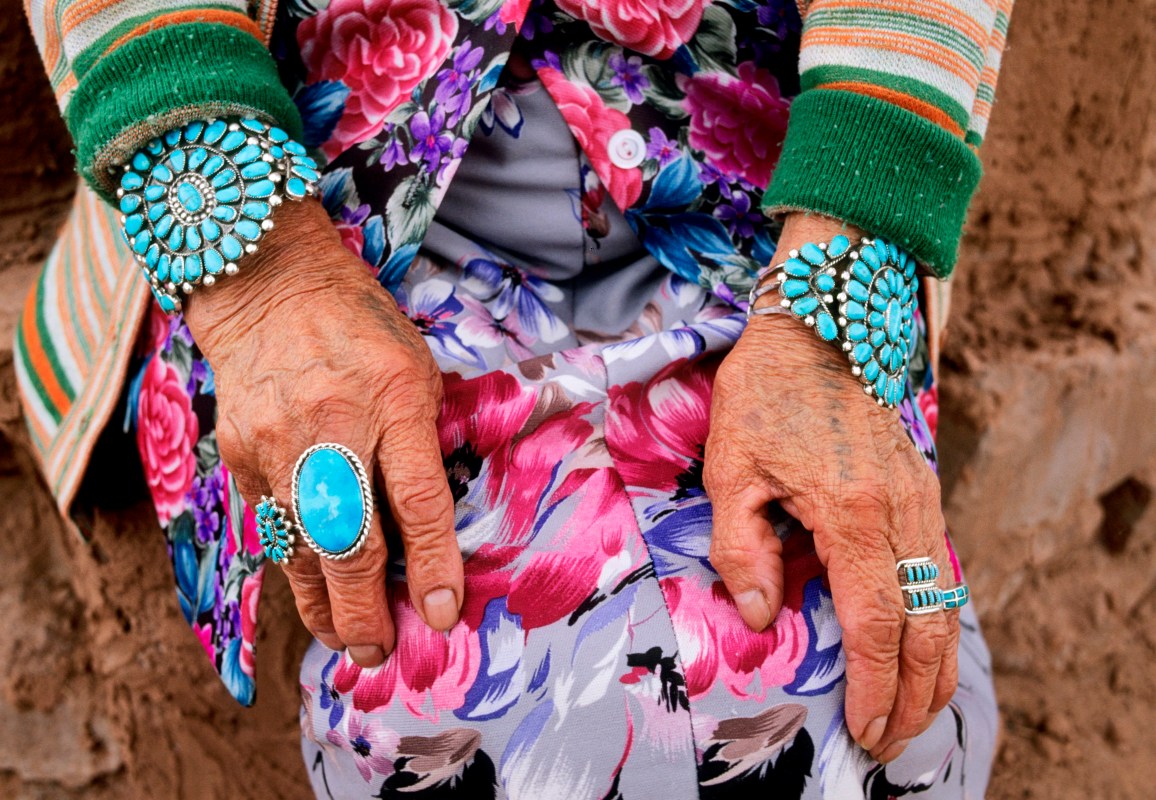The Zuni people, who live high on the Colorado Plateau in northwestern New Mexico, rely heavily on hard-won earnings from handmade jewelry and crafts. According to National Geographic, the tourism department of Zuni Pueblo estimates that 80 percent of working adults there make arts and crafts for sale. However, it has become harder and harder for them to make a living because they are being undercut by fakes — nonnatives posing as Indians to sell more of their work, factory goods sold as handmade. Today’s fakes include a huge range of knockoffs cheaply manufactured overseas and sold as genuine Native made — “baskets made in Pakistan sold as Navajo, beadwork made in China sold as Plains Indian, Hopi katsina dolls cranked out in the Philippines — none more profitable than counterfeit Indian jewelry.” This goes beyond just losing money. Navajo jeweler Liz Wallace told Nat Geo, “Our arts and crafts give us a really concrete way to stay connected to our culture and our history. All this fake stuff feels like a very deep personal attack.” Only recently has the U.S. government taken any serious action to shut down the major operators. But now, Albuquerque jewelry dealer Nael Ali is sentenced for fraudulently selling imported jewelry as Native American made. Ali pleaded guilty on Oct. 18, 2017, to misrepresenting as Native-made jewelry. According to Nat Geo, Ali’s sentencing is the first in the ongoing federal investigation called Operation Al Zuni. The operation began in March 2012 and is the most extensive ever conducted into Native American art fraud.
Thanks for reading InsideHook. Sign up for our daily newsletter and be in the know.


















